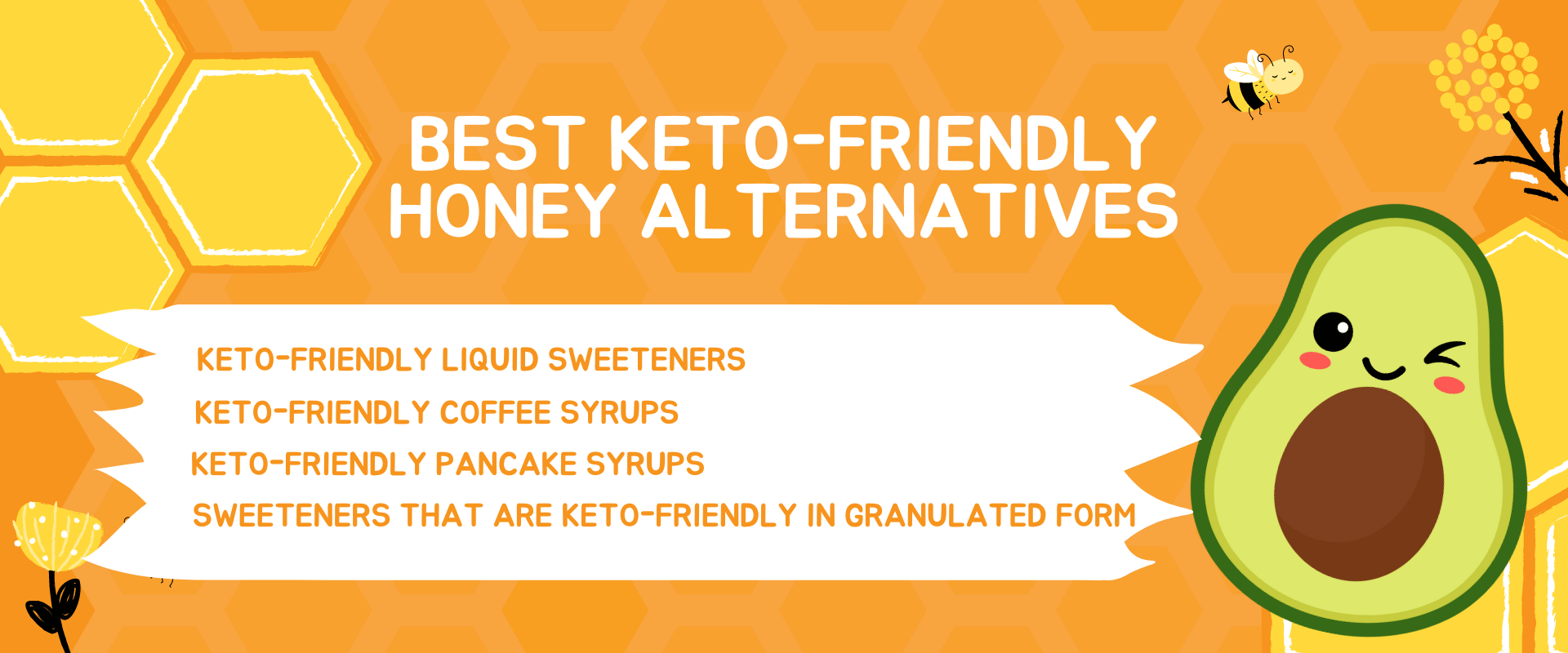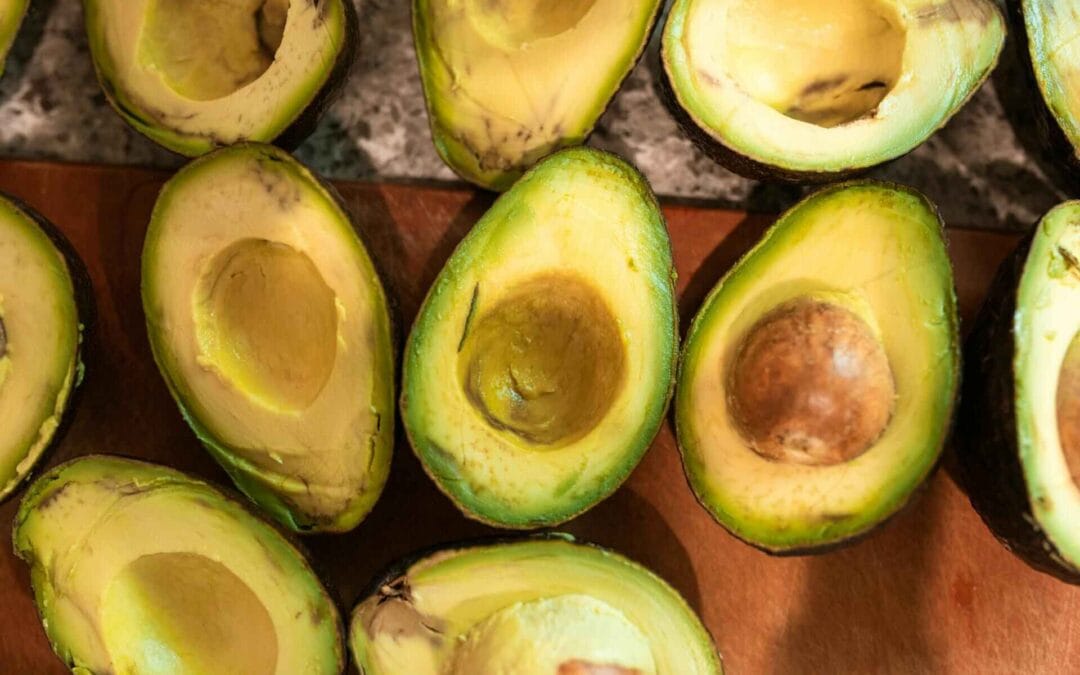Honey is widely regarded as a healthier alternative to sugar. It is more natural and claims to have several health advantages.
But does it indeed merit that moniker? Is honey Keto-friendly?
Let’s learn more about this natural sweetener.
What Is Honey?
Honey is a sticky, sweet, amber-colored material made by bees from plant nectar.
Although bees produce honey to feed themselves, humans enjoy it as well.
It’s delicious, but the flavor varies greatly depending on the sort of nectar the bees can access.
Honey sweetens coffee, tea, baked foods, and pastries. It’s also found in a variety of natural skin care products.
Honey Nutrition
Honey is equivalent to other sugary sweeteners in terms of calories and macronutrient composition, such as granulated sugar, maple syrup, and agave nectar.
One teaspoon (7 grams) of honey contains the following nutrients:[1]
- Calories: 21
- Protein: 0 grams
- Fat: 0 grams
- Carbs: 6 grams
- Fiber: 0 grams
- Net carbs: 6 grams
Honey also includes trace amounts of vitamins and minerals. However, the amount varies depending on the source.[2]
Is It Healthy?
Honey is a beautiful sweetener to use in moderation instead of granulated sugar or highly processed sweeteners. It’s lightly processed, especially if you buy raw honey, and it may have a slight benefit over other sweeteners in terms of vitamins and minerals.
Furthermore, there is some evidence that it may be beneficial in relieving cough symptoms, particularly in youngsters.[3]
Honey may have anti-inflammatory properties.[4]
However, it is still exceptionally high in sugar-derived carbs, so portion control is critical, especially if you restrict your carb consumption.
Is Honey Keto?
Honey has 82 grams of carbohydrates per 100 grams, making it 82% carbs. Generally, we only consider a food Keto-friendly once it has 5% carbohydrates or less.[5]
Honey is not a Keto-friendly food in this respect.
However, there are a few occasions where honey may be allowed on Keto, such as:
- When it’s used to activate yeast: A tiny quantity of honey is occasionally used as an ingredient in Keto baking recipes that involve yeast. However, you do not need to count these carbohydrates since the yeast consumes practically all the sugar in the honey. This is what initiates fermentation and causes the dough to rise.[6]
- When used sparingly as a sweetener: If you want a little honey in your coffee or tea, you may use tiny quantities and stay in ketosis. However, even a small amount soon adds up to many net carbs.
- When used in small amounts in recipes, Honey is frequently used in modest amounts (a teaspoon or two) to balance off acidity, bitterness, or sourness in savory foods or salad dressings. When divided into many servings, this amount is usually minimal enough not to affect your ketosis.
On Keto, you should limit your honey consumption to no more than 1 teaspoon daily, which has 6 grams of net carbohydrates. Even so, avoiding honey will make reaching your daily carb goal much more accessible.
Who Should Avoid Honey?
Honey may not be ideal for Keto, but little doses can work.
Nonetheless, certain people should avoid honey.
Bees make honey. Hence, it is not vegan. If you follow a Vegan diet, an alternative sweetener such as maple syrup is preferable.
Similarly, if you eliminate added sugars, you should avoid honey. Although it is obtained from a natural source, it is nevertheless classified as an added sugar since it must be added to other foods to sweeten them, as opposed to fruit, which is naturally sweet on its own.
Furthermore, if you follow a Carnivore diet, you should avoid honey because of its high glucose level. On the other hand, because honey is an animal food, some individuals follow the Carnivore Diet and the comparable Animal-Based Diet.
Best Keto-Friendly Honey Alternatives
Because honey is so unique, it might not be easy to find a suitable equivalent that is sugar-free, Keto-friendly, and manufactured with clean ingredients. Here are some ideas that could work for you:
- Sweeteners that are keto-friendly in granulated form. There are several Keto sweeteners available. Granulated ones may be an excellent substitute for honey in baked items. We favor natural sweeteners like monk fruit, stevia, or allulose over artificial sweeteners like sucralose or aspartame. Wholesome Allulose, Swerve, Pyure, and Lakanto are some of our faves.
- Keto-friendly liquid sweeteners. Keto-friendly liquid sweeteners are also available, which are great for replacing honey in beverages. Liquid versions of the brands Pyure, Wholesome, and Lakanto are available.
- Keto-friendly coffee syrups. Keto-friendly coffee syrups are available to add some flavor to your coffee or tea. Jordan’s Skinny Syrups are tasty, and the Naturally Sweetened variants contain stevia.
- Keto-friendly pancake syrups. Finally, consider a Keto-friendly pancake syrup instead of using conventional honey to sprinkle straight on top of meals. ChocZero and Lakanto pancake syrups are favorites of ours.

The Bottom Line: Is Honey Keto-Friendly?
Is honey OK for the Keto diet? Not much, except in tiny doses in some cases. Honey contains a lot of sugar, so avoiding it while on Keto can make it much simpler to keep to your net carb target. Nonetheless, it may have certain health advantages.
You may incorporate small quantities into your Keto diet if you adore honey. A modest amount spread across numerous recipe parts can help cut through bitterness and acidity while not influencing your ketosis. Remember that you don’t need to count those carbohydrates when using modest amounts to activate the yeast.
Many tasty, natural alternatives to honey may sweeten your Keto day (without consuming all of your net carbs).







0 Comments